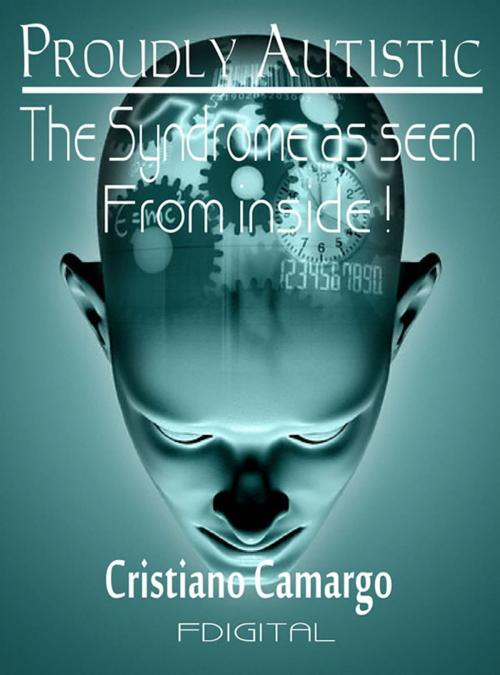| Author: | Cristiano Camargo | ISBN: | 9781909144392 |
| Publisher: | FDigital | Publication: | October 20, 2012 |
| Imprint: | FDigital IDP | Language: | English |
| Author: | Cristiano Camargo |
| ISBN: | 9781909144392 |
| Publisher: | FDigital |
| Publication: | October 20, 2012 |
| Imprint: | FDigital IDP |
| Language: | English |
Everything is impossible until you try. This phrase is one that has guided my life for many years and I believe that it summarises the Asperger spirit. From now on, you, reader, will make an intense journey into the world of the Asperger mind, knowing its inner workings and my worldview, my life, my theories about this syndrome (which I personally believe much of it applies also to Classic Autism) and my contact with other people with Asperger's. As is known in scientific circles, Asperger's Syndrome (or AS) is part of Autism, but is considered a lighter variation, similar to what they call Autism High Performance. The story behind the title of this book, you, reader, will come to know when in the chapter 'Benefits and Advantages of Asperger's Syndrome for individuals with AS'. I would warn, however, that although we can't say with accuracy and responsibility that the benefits and advantages apply to all other individuals with AS and Autism they can apply to a large number of cases. Let me explain: The Asperger's Syndrome is characterised by specific features and expresses itself with high degrees of diversity and differences, varying from person to person. Only a few of these characteristics are truly universal, which makes each case particularly individual. An expression that I will be using a lot and that can generate questions is neurotypical (or NT), meaning individuals neither with AS or Autism. That being said, I wish you a good read!
Everything is impossible until you try. This phrase is one that has guided my life for many years and I believe that it summarises the Asperger spirit. From now on, you, reader, will make an intense journey into the world of the Asperger mind, knowing its inner workings and my worldview, my life, my theories about this syndrome (which I personally believe much of it applies also to Classic Autism) and my contact with other people with Asperger's. As is known in scientific circles, Asperger's Syndrome (or AS) is part of Autism, but is considered a lighter variation, similar to what they call Autism High Performance. The story behind the title of this book, you, reader, will come to know when in the chapter 'Benefits and Advantages of Asperger's Syndrome for individuals with AS'. I would warn, however, that although we can't say with accuracy and responsibility that the benefits and advantages apply to all other individuals with AS and Autism they can apply to a large number of cases. Let me explain: The Asperger's Syndrome is characterised by specific features and expresses itself with high degrees of diversity and differences, varying from person to person. Only a few of these characteristics are truly universal, which makes each case particularly individual. An expression that I will be using a lot and that can generate questions is neurotypical (or NT), meaning individuals neither with AS or Autism. That being said, I wish you a good read!















